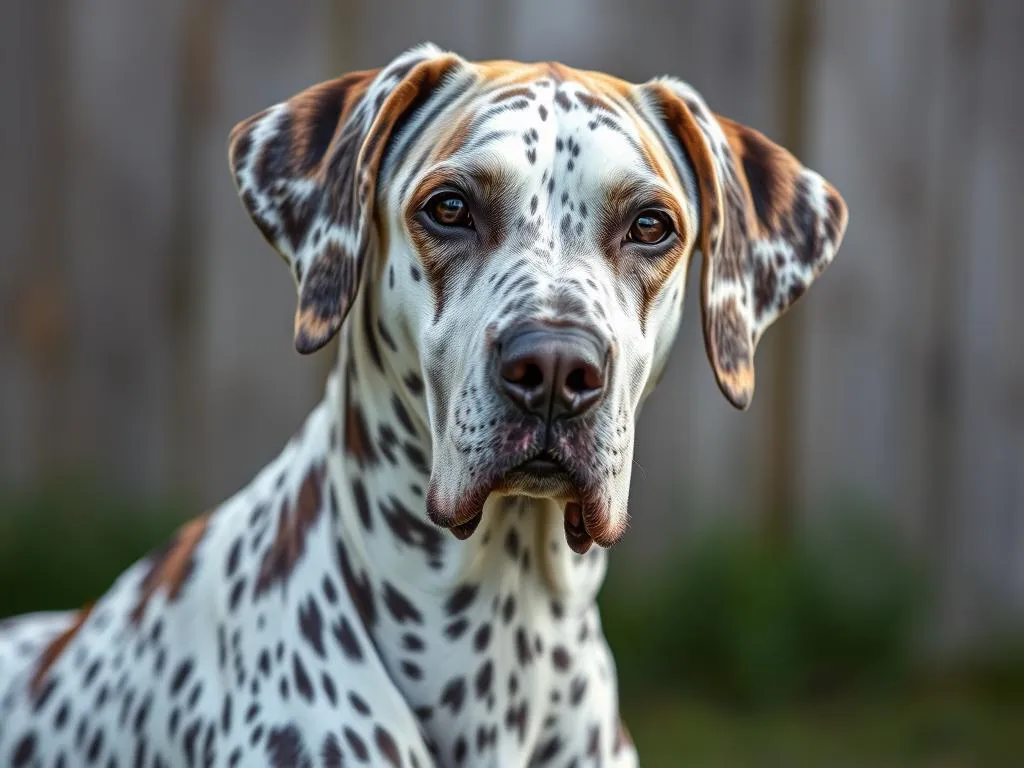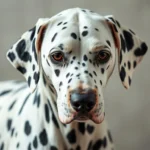
Introduction
Great Danes, often referred to as “gentle giants,” are a breed known for their impressive stature and friendly demeanor. As one of the largest dog breeds, they can weigh anywhere from 100 to 175 pounds, making them a striking presence in any home. However, their size is just one aspect to consider when evaluating whether Great Danes are good for first-time dog owners.
Choosing the right dog breed is crucial for first-time owners, as it can significantly impact the overall experience of dog ownership. While Great Danes are affectionate and loyal companions, their unique needs and characteristics require careful consideration. This article aims to provide a comprehensive evaluation of whether Great Danes are suitable for first-time dog owners.
Understanding Great Danes
Breed Characteristics
Great Danes are known for their impressive height, often towering over many other breeds. Adult males typically stand between 30 to 34 inches at the shoulder, while females range from 28 to 32 inches. Their weight can vary, but it generally falls between 100 to 175 pounds. Despite their size, Great Danes possess a calm and gentle temperament that endears them to many.
In terms of personality, Great Danes are friendly, affectionate, and good-natured. They are known to be social dogs that thrive on companionship. Their average lifespan is around 7 to 10 years, and like many large breeds, they can be prone to specific health issues, which will be discussed later.
History and Origin
Great Danes have a rich history that dates back over 400 years. Originally bred in Germany, they were used for hunting large game, such as boars and deer. They also served as protectors, guarding estates and livestock. Their noble lineage and impressive stature led to their reputation as “the Apollo of dogs.”
Over time, Great Danes have transitioned from working dogs to beloved family pets, known for their loyalty and companionship.
Common Myths about Great Danes
Despite their formidable size, there are several misconceptions about Great Danes. One common myth is that they are aggressive due to their size. In reality, Great Danes are typically gentle and friendly, especially when properly socialized. Another misconception is that they require vast amounts of exercise due to their size. While they do need regular exercise, their energy levels are often lower than those of smaller, more active breeds.
Great Danes and First-Time Dog Owners
What First-Time Dog Owners Should Consider
Before deciding to adopt a Great Dane, first-time dog owners should evaluate several factors. The time commitment involved in caring for a dog is significant, and Great Danes require attention, training, and socialization. Owners should ensure their lifestyle aligns with the needs of this breed.
Space is another critical consideration. Great Danes are large dogs that require ample room to move around comfortably. Ideally, they thrive in homes with yards, but they can also adapt to apartment living if given enough exercise and mental stimulation.
Financial considerations are equally important. The costs associated with owning a Great Dane can be higher than those of smaller breeds, as they consume more food and may incur higher veterinary bills due to their size.
Training and Socialization
Training is essential for Great Danes, particularly because of their size. Proper training helps ensure that they can be well-mannered companions. Great Danes are good for first-time dog owners if they are trained using positive reinforcement techniques. These methods encourage good behavior through rewards and praise, making training a more enjoyable experience for both dog and owner.
Socialization is also crucial. Exposing a Great Dane to various environments, people, and other animals from an early age can help them develop into well-adjusted adults. Regular interactions with other dogs and people can prevent the development of fear-based behaviors.
Daily Care and Maintenance
Great Danes have specific feeding requirements due to their size. They typically eat around 4-8 cups of high-quality dog food daily, divided into two meals. Owners should always monitor their dog’s weight to prevent obesity, which can lead to further health issues.
In terms of exercise, Great Danes benefit from daily walks and playtime. While they may not require as much exercise as smaller, more energetic breeds, they still need regular activity to maintain a healthy weight and to stimulate their minds.
Grooming for Great Danes is relatively low-maintenance. Their short coat requires minimal brushing, but owners should be attentive to their nails, ears, and teeth. Regular veterinary check-ups are essential to monitor for potential health issues.
Pros of Owning a Great Dane as a First-Time Owner
Temperament
One of the most significant advantages of owning a Great Dane is their temperament. Known as “gentle giants,” they are affectionate and friendly, making them excellent family pets. Great Danes are often very good with children, displaying patience and protectiveness. They can also get along well with other pets, provided they are socialized properly from a young age.
Trainability
Great Danes are intelligent dogs, making them relatively easy to train. Their willingness to please their owners can lead to quick learning of commands and tricks. First-time dog owners may find that, with consistent training, their Great Dane becomes a well-behaved companion who can follow commands with ease.
Unique Qualities
Great Danes have a unique ability to be protective without being aggressive. Their imposing size can deter potential threats, while their friendly nature ensures they are usually approachable. As companions, Great Danes are known for their loyalty and devotion to their families, making them excellent additions to any household.
Cons of Owning a Great Dane as a First-Time Owner
Size and Space Requirements
While Great Danes have many positive attributes, potential owners should also consider the challenges associated with their size. Living conditions are a crucial factor; those in apartments may find it difficult to provide enough space for a Great Dane to thrive.
Their size also affects daily activities. For example, owners may need to adjust their furniture and living space to accommodate their dog’s needs, which can be a significant lifestyle change for first-time owners.
Health Issues
Great Danes are prone to specific health issues, such as hip dysplasia, bloat, and heart conditions. These health problems can lead to costly veterinary bills and emotional stress for owners. Furthermore, their average lifespan of 7 to 10 years may be shorter than that of smaller breeds, which can be a consideration for potential owners.
Exercise and Energy Levels
While Great Danes do require daily exercise, their energy levels are generally lower than smaller, more active breeds. However, they still need regular physical activity to stay healthy. First-time dog owners with a more sedentary lifestyle may find it challenging to meet the exercise needs of a Great Dane, leading to potential behavioral issues if the dog does not receive enough stimulation.
Conclusion
In summary, Great Danes can be good for first-time dog owners, provided those owners are aware of the unique needs and challenges associated with this breed. Their gentle nature, compatibility with children and other pets, and intelligence make them appealing companions. However, potential owners should consider their living situation, financial commitment, and ability to provide training and socialization.
If you are considering adopting a Great Dane, it’s essential to conduct further research and evaluate your lifestyle to determine if this breed is the right fit for you.
FAQs
Are Great Danes good with children?
Yes, Great Danes are typically gentle and affectionate with children, making them excellent family pets.
How much do Great Danes eat?
Great Danes usually require 4-8 cups of high-quality dog food daily, depending on their size and activity level.
What is the average lifespan of a Great Dane?
The average lifespan of a Great Dane is around 7 to 10 years.
How much exercise do Great Danes need daily?
Great Danes need regular exercise, including daily walks and playtime, but their energy levels are generally lower than those of smaller breeds.
Are Great Danes prone to any specific health issues?
Yes, Great Danes can be prone to various health issues, including hip dysplasia, bloat, and heart conditions, making regular veterinary check-ups essential.









